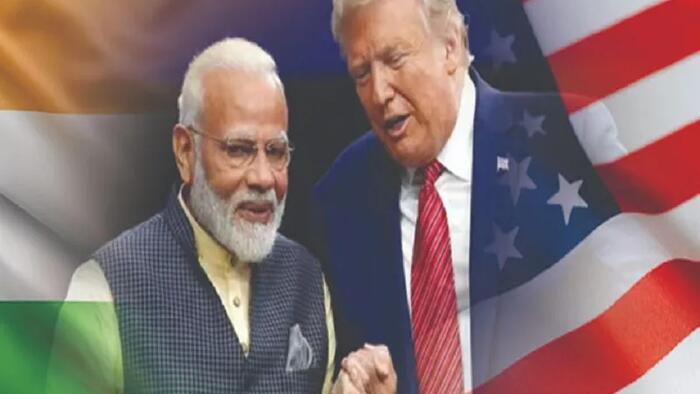Andrew Korybko discusses the potential impact of Donald Trump’s return to the White House on US-India relations, highlighting how this change could help mend the rift caused by President Joe Biden’s administration. The relationship between India and the US has soured significantly due to incidents such as the alleged assassination attempt on an Indian politician and concerns over American intervention in India’s domestic electoral processes. Many Indians also view recent US-backed regime changes in neighboring Bangladesh as a betrayal of regional security interests and are frustrated by US pressure to decrease ties with Russia. If Trump re-enters the White House with Indian-friendly officials, particularly if Kashyap Patel becomes CIA chief, there’s a sense of optimism about repairing ties and addressing these core issues.
A primary concern for India is how the US has been perceived as sheltering Khalistani separatists, who are viewed as threats to Indian sovereignty. The desire for Trump to adopt a law-and-order approach is fueled by hopes that he will restrict the activities of individuals like Gurpatwant Singh Pannun, who have made hostile statements against India. With Trump’s prior commitment to law and order, many in India anticipate that he will act decisively against these provocations as a way to demonstrate a renewed commitment to strengthening bilateral ties. Moreover, India’s wish list includes a call for the US to cease its interference in Indian domestic matters, particularly amid rising tensions linked to socio-political criticisms from various American NGOs and actors.
Additionally, India seeks US pressure on the new Bangladeshi regime to protect the minority Hindu population and ensure fair electoral processes. The possibility of establishing a US military base in Bangladesh raises significant concerns for India, as it could alter the regional balance of power. Given this context, India’s expectations from the US lean toward a more supportive and understanding relationship that respects its regional security priorities. A shifting approach from the US could alleviate these concerns and encourage stronger cooperation between Washington and New Delhi.
Another aspect of the bilateral relationship that India is keen to address is the US’s balancing act between India and Pakistan. Korybko points out that the Biden administration’s approach diverged from Trump’s more India-centric policies, often favoring liberal-globalist agendas that conflicted with India’s nationalist principles. A return to Trump’s administration could signify a shift back to prioritizing India in regional policy, especially against the backdrop of improving ties with China that the Biden administration has explored, which India views with suspicion.
Furthermore, India hopes for a cessation of American pressure to abandon its longstanding ties with Russia. Trump has expressed intentions to “un-unite” Russia and China, which would enable India to argue that maintaining its relationship with Russia is crucial for preventing these two countries from forming a more unified front. The idea that Trump’s team might adopt a balancing strategy akin to Henry Kissinger’s approach could resonate positively with Indian interests, especially considering India’s engagement in Indo-Russian trade.
Finally, while India’s recent rapprochement with China represents a cautious step forward, it harbors hope that Trump could adopt a firmer stance against China than Biden did. Increasing military cooperation, including high-tech arms sales and negotiations around a free trade deal, remains on the agenda as India looks to further consolidate its position as a counterbalance to China. Overall, the future of US-India relations appears promising should Trump and his pro-India aides assume office again, provided they manage to suppress any liberal-globalist agendas that might undermine this potential alliance.

